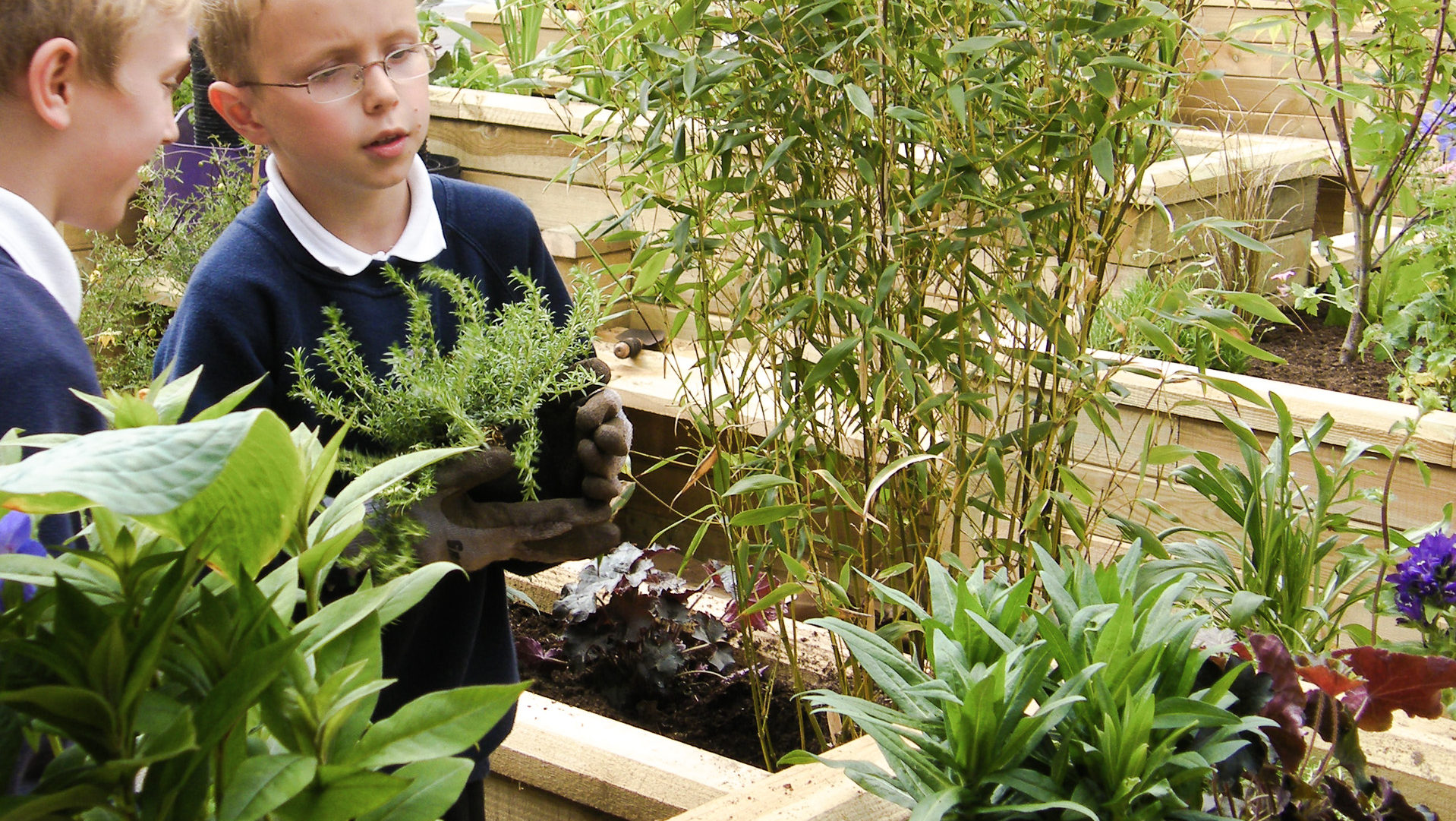If you’ve ever despaired at your children’s lack of interest in eating fruit and vegetables, why not try growing some with them? Following the whole process of sowing the seed to harvesting the crop, and then cooking it together, can really make children invest in their labours – they’ll want to try what they’ve spent all that time growing. Chances are they’ll suddenly discover that they do like carrots after all! For short attention spans, crops with quick returns are best. Micro-leaves offer the fastest harvest time, as they are just seedlings, and can be grown like cress – remember the cress ‘hair’ in the eggshell heads you probably made when you were a child? All sorts of salad crops can be grown this way, or just on a piece of damp kitchen towel, such as lettuce leaves, beetroot and radishes. Full grown radishes also offer a fast turnaround from sowing to harvest, and baby versions of mainstream crops such as carrots and parsnips are harvested sooner, and are often naturally sweeter too. Then it’s time to think about the crops that can be eaten straight from the plant – fruit such as strawberries, raspberries, blueberries and tree fruit (apples, plums, cherries) are all great choices. Peas can be eaten straight from the pod – or eat the whole pod with mangetout (literally ‘eat-all’) – when a vegetable is freshly harvested its natural sugars are at their highest level, and peas can be munched like sweets. New potatoes also offer excitement and learning opportunities – planting one potato results in many more, and digging for the harvest is like digging for buried treasure. Giving children ownership of their own growing space also means they are more invested in the outcome. A raised bed can be a great way to do this – a small space, contained and separate from your own flower/veg beds, so there is no chance of precious plants being trodden on, and raised off the ground to make it easier for them to reach. If blueberries are a particular favourite, a raised bed is also a great way to introduce the right soil – acidic – for these plants in a neutral or alkaline soil garden.
In a 90cm by 90cm square bed, such as those offered by WoodBlocX, there would be space for:
- A strawberry plant in each corner
- A central sunflower – use it as a support for a climbing bean plant
- A row of baby carrots
- A row of peas
- A row of first early (new) potatoes that once out, could be replaced with a pumpkin plant for Halloween (though this will probably trail out of the bed a bit as well).
Alternatively, by going for a slightly deeper bed – 45cm as a minimum, such as the hexagonal 1.55m x 0.925m bed from WoodBlocX – you could go for the lower maintenance option of a fruit tree surrounded by herbs and flowers. Children love to try the different scents on the leaves: mints are great for this, coming in flavours such as strawberry and chocolate, and pineapple sage is another good option. Nasturtiums are a brilliant seed to sow with children as their seeds are large and easy to handle, and germinate relatively quickly and reliably.




